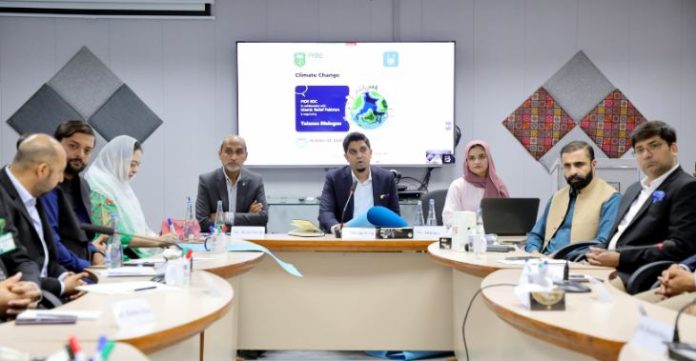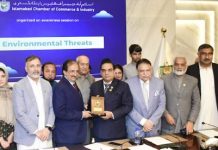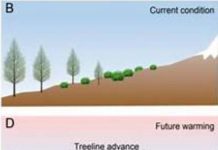ISLAMABAD, OCT 26 /DNA/ – The Pakistan Institute of Development Economics (PIDE), in collaboration with Islamic Relief Pakistan, hosted an insightful Talanoa Dialogue titled “Collaborative Climate Action for a Resilient Pakistan.” The event brought together researchers, practitioners, and policymakers to foster inclusive discussions on climate resilience, adaptation, and sustainable development.
Moderated by Dr. Khurram Ellahi, Assistant Professor at PIDE, the session introduced the Talanoa Dialogue framework — a participatory, story based approach emphasizing transparency, inclusivity, and trust in climate conversations. The dialogue revolved around three guiding questions: Where we are, where we want to be, and how we are going to get there.
In his opening remarks, Mr. Raza Narejo, Acting Country Director at Islamic Relief Pakistan, highlighted the organization’s ongoing initiatives in water and food security, gender inclusion, and climate adaptation. He emphasized that dialogues like Talanoa complement Pakistan’s national climate commitments and contribute to shaping discussions ahead of COP30. Mr. Narejo underscored that local perspectives are essential for effective climate policy, as on ground realities often differ from policy level assumptions.
Participants shared firsthand experiences and local observations of Pakistan’s evolving climate landscape from unpredictable weather patterns and recurring floods to soil degradation, air pollution, and urban expansion. Concerns over declining crop yields and nutritional quality reflected the direct link between environmental degradation, food insecurity, and public health. Participants noted that limited awareness among farmers about adaptive agricultural practices and weak enforcement of pollution controls continue to hinder resilience efforts. They emphasized that climate adaptation must be coupled with education, behavioral change, and stronger local participation in decision making processes.
Dr. Nasir Iqbal, Associate Professor and Registrar PIDE, stressed that policy design itself influences climate outcomes and called for evidence based policymaking that integrates environmental and economic objectives. He also pointed to the absence of climate insurance mechanisms to protect vulnerable households from floods, droughts, and crop failures. Other contributors, including Dr. Zulfiqar, Dr. Usman, and Dr. Faisal, discussed the social and psychological dimensions of climate stress, such as forced migration, loss of community identity, and post disaster vulnerabilities. They urged reviving traditional ecological knowledge and strengthening civic engagement to bridge Pakistan’s growing environmental awareness gap.
The dialogue produced several actionable recommendations aimed at building climate resilience and fostering behavioral change. Participants called for reforestation and stricter regulation of industrial and mining activities to mitigate environmental degradation, the promotion of urban greenery and rooftop gardening to improve air quality and urban wellbeing, and the installation of mandatory water treatment systems in all new housing schemes to prevent groundwater contamination. They also stressed the need for improved coordination among federal, provincial, and local institutions, the expansion of community based climate awareness campaigns, and the adoption of nature based, locally informed solutions that reflect community realities and priorities.
In conclusion, the Talanoa Dialogue reaffirmed that Pakistan’s journey toward climate resilience must begin with awareness, behavioral change, and shared ownership. Dr. Khurram Ellahi thanked all participants for their valuable contributions and reaffirmed PIDE’s commitment to advancing climate informed research and collaborative policy action. The dialogue demonstrated that inclusive discussions grounded in empathy, evidence, and shared responsibility are vital to shaping Pakistan’s response to the growing climate crisis and achieving a sustainable, resilient future.

















